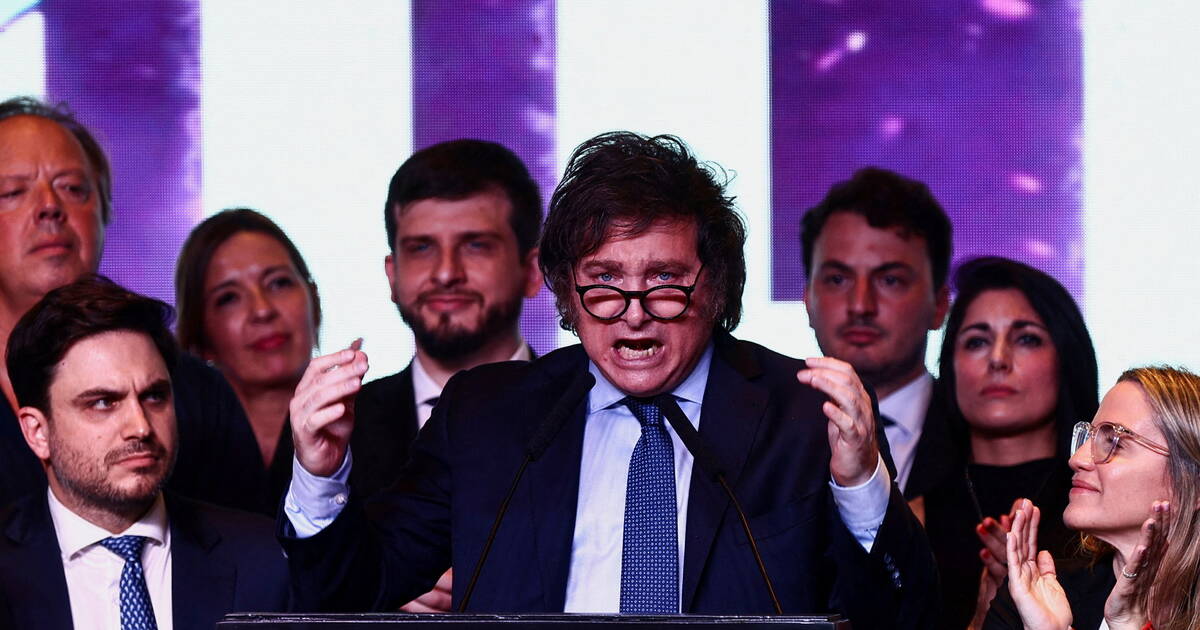Marking the first protests against the new far-right leader, the Argentine government announced on Monday, December 18, that any demonstrator who obstructs traffic would have their welfare benefits cut, sparking outrage from the opposition.
The road cutting in Argentina led by Javier Milei now poses a higher risk to the poor than to the rich. On Monday December 18th, on the eve of a first mobilization against the new ultra-right president on Tuesday December 19th and Wednesday December 20th, the ultra-liberal government doubled down on its threats to the demonstrators: anyone who blocks a road will be social assistance withdrawn. According to the Spanish daily El País, this measure was declared unconstitutional by opposition MPs and denounced in court.
Human Capital Minister Sandra Pettovello warned on Monday a short message sent on his X account (formerly Twitter) from the executive branch that “those who cut off the road will not be paid,” specifically targeting “the beneficiaries of social plans.” In other words, the most vulnerable Argentines, whose lives rely on social assistance. According to the Social Observatory of the Catholic University of Argentina, 40.1% of the country's population is poor, while one in two residents receives some form of government assistance, either directly or through an organization. “If it is actually a right to demonstrate, then it is also a right to move freely on the way to work,” emphasized the minister. “We are particularly concerned about mothers bringing their children to protests,” she added in another statement. There is no point in exposing them to the heat and violence of the protests. In the new Argentina, this situation must come to an end.”
The government fears increasing social unrest due to the economic deterioration caused by its adjustment plan of 5% of GDP by 2024, equivalent to a $20 billion cut in public spending. A few days before the social welfare statements, the Argentine government announced that the police would intervene against any blockages of roads during demonstrations.
Far from calming the situation, these statements increased tensions between left-wing parties and trade unions. “We will all take to the streets,” said Eduardo Belliboni, one of the leaders of an important radical left-wing social movement, Polo Obrero (Workers’ Pole), El País reports. The choice of the date of their mobilization against the austerity plan of the far-right president, seen as an “explosion of purchasing power”, is no coincidence: December 20 is associated with the memory of Argentines of the great demonstrations of 2001, during which 39 people died during the sovereign debt crisis Lives and half a thousand were injured. Since then, December has always been a hectic month in the Argentine calendar, with traffic drops almost daily, especially in Buenos Aires.
“A plan of popular aggression”
“It is more than a restriction on the use of police force, it is an authorization to exercise violence against demonstrators,” who are therefore “criminalized,” the Center for Social and Legal Studies (CELS) denounced the government’s announcement on December 14 to new security protocol. This has been denounced by several human rights organizations, who see it as an attack on the freedom to demonstrate.
👉Announce the protocol against the protest @CIDH There @OACNUDH
With more than 1,700 companies of trade union centers, social organizations and DDHH organizations, the unions existing in the Argentine state guarantee the right to protest. https://t.co/y6s5SDceYy
— CELS (@CELS_Argentina) December 19, 2023
The Minister of Security Patricia Bullrich, returning to the post she already held between 2015 and 2019 under the presidency of the liberal Mauricio Macri, announced this next law to prevent “cuts, pickets, roadblocks” that affect activity and “ prevent the lives of Argentines.” in peace. The new protocol envisages increasing the radius of action of the police, who would intervene in the event of any road closures to clear traffic areas. “The force applied will be the minimum required but proportional to the resistance,” she explained, specifying that “the bill for this device will be sent to the responsible organizations or individuals.” The state will not pay for this deployment of security forces.”
Polo Obrero condemned “a popular plan of aggression” by Patricia Bullrich. For their part, the MPs of the Frente de Izquierda (Left Front) are taking legal action. This Monday they asked the court for a preventive measure to suspend and declare this anti-protest protocol unconstitutional. Following the minister's announcements, several media outlets pointed out that a similar plan had already been launched under the Macri government without much success.

